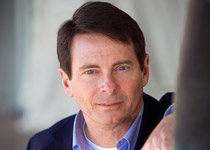Waypoints: All in the family
GA and the airlines working together
 Just as it’s important to check in with those whacky relatives in your extended family from time to time, it’s good that general aviation keeps tabs on what is happening in our extended aviation family. What crazy Aunt Mary says to Cousin Suzie can sometimes have widespread consequences in the family.
Just as it’s important to check in with those whacky relatives in your extended family from time to time, it’s good that general aviation keeps tabs on what is happening in our extended aviation family. What crazy Aunt Mary says to Cousin Suzie can sometimes have widespread consequences in the family.
With that in mind, I spent a day in Washington, D.C., attending the U.S. Chamber of Commerce Aviation Summit 2013. While the event was dominated by the airlines, their associations, and suppliers, AOPA and the National Business Aviation Association were sponsors, too.
As you’ve no doubt noticed, general aviation and the airlines have a love/hate relationship with one another—there’s that family resemblance again. On some issues at some times, GA and the airlines are arm in arm. At other times, not so much. And sometimes it depends on what else is swirling around aviation as a whole. In 2007, with one or two exceptions, the airlines were definitely in the user-fee camp, willing to accept user fees as a way to stick it to GA in an attempt to “level the playing field” in regard to fees paid to support the air traffic system.
However, after the economic collapse in 2008 that led to a dramatic reduction in both airline and GA operations, the major carriers quickly recognized that reduced traffic counts would require a big boost in user fees to support an ATC system that does not shrink in relationship to reduced traffic counts. You’ll notice that these days airlines oppose user fees, which has helped keep them at bay; but it hasn’t kept the president from proposing them year after year.
One of the reasons for a user fee is to prop up government spending. With neither the executive nor legislative branches able to responsibly manage costs, Congress passed and the president signed sequester legislation—a poison pill that would put in place automatic spending cuts if certain thresholds were not met. Surprise, surprise, the spending reductions were not met and the sequester legislation kicked in early this year. As U.S. Chamber President Thomas Donohue said at the summit, “All assumed that sequestration was so scary it would never be implemented, but here we are, even though it’s a silly way to go after cutting the budget.”
Later at the summit, W. James McNerney Jr., chairman, president, and CEO of Boeing, told Donohue the number of flight segments will double in the next 20 years. With that he encouraged full funding for NextGen, the next generation of air traffic control, which relies heavily on ADS-B, required navigation performance (RNP), and a host of other technologies to improve air traffic management and efficiency. “The return is infinite,” he said.
Interesting that an airliner manufacturer would say that at the same time that some airlines and some GA advocates are calling for the FAA to redeploy funds slated for NextGen to satisfy more immediate needs during the 10-year sequestration period—when even more cuts are scheduled to kick in year after year for a decade. Some airlines are debating their ability to continue funding aircraft equipage for RNP—which promises efficient curved approaches, for example—unless the FAA more quickly implements NextGen. Later in the summit, Clayton Jones, chairman and CEO of Rockwell Collins, which makes some of that RNP gear, suggested that full implementation of NextGen would save some 1,000 pounds of fuel per flight.
Jeffrey Smisek, the chairman, president, and CEO of United Continental Holdings, declared that his airline is not seeing a pilot shortage, but he expects the regional carriers will experience it first. Meanwhile, he expressed little belief that the 1,500-hour rule and ATP requirement that is about to go into place for airline pilots means anything. “It isn’t related to quality. It’s just a number.”
A big employer of pilots is FedEx. AOPA President and CEO Craig Fuller presented the Carol B. Hallett Award to Fred Smith, founder of FedEx. The award recognizes “an individual who has demonstrated outstanding leadership and has provided significant contributions in advancing the aviation industry.” Given that FedEx started a whole new airline segment—at first flying Falcon business jets, by the way—Smith certainly is well qualified for the award.
The owner of a Beechcraft Bonanza A36, Editor in Chief Tom Haines has been reporting on general aviation for 28 years. Email [email protected]. Follow on twitter.com/tomhaines29.


